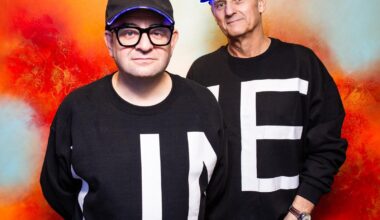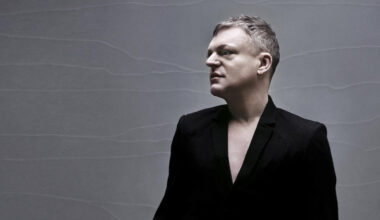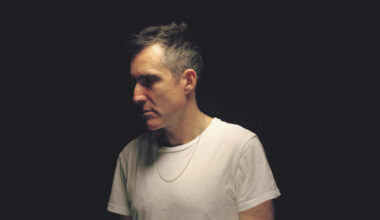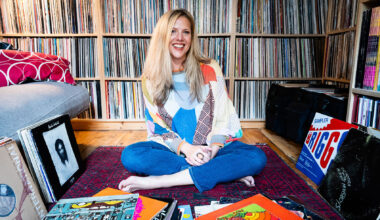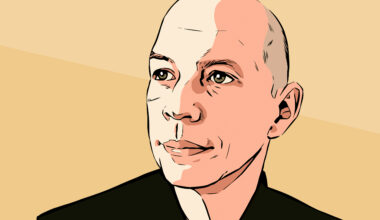Rose Elinor Dougall picks a path through her very own musical journey from cradle to, well, right now…

Parental Guidance
“My father has a massive record collection which my brother and I pillaged during our teenage years, much to his chagrin. My dad loved John Martyn and Joni Mitchell, and my mum was obsessed with soul and reggae artists like Desmond Dekker and Augustus Pablo – it gave me this quite balanced music taste I think. My mum was a big Al Green fan, and that forms an early memory for me. My parents were enjoying a moment listening to him while we were at a fair in Stoke Newington. I was on a ride and I saw them enjoying it together. They had their own thing going on that I wasn’t a part of, it was kind of a shock.”
Teenage Kicks
“Coming into my teens, Britpop was everywhere: Pulp, Blur and Elastica on ‘Top Of The Pops’. I remember thinking there were people out there doing something I really wanted to be a part of. I joined The Pipettes when I was 16, so there was a period when all I listened to was girl groups: the Shangri-Las, the Ronettes, the Murmaids, and also plenty of Joe Meek. It was definitely a different palette of sounds, which felt really other; the sonics were quite unusual and felt like they came from somewhere else entirely.
“When my dad left home, his record collection stayed in the house. I think that’s when I started to gravitate to, and develop my own relationship with, some of those records I grew up listening to: Bridget St John, Anne Briggs, Fairport Convention, Nick Drake and Sandy Denny were huge for me. My bedroom was in the attic, so there were many insular, self-indulgent hours spent up there. I didn’t really get into weed, but I learnt to roll cigarettes in a bay window that I’d then smoke out of.”
Head Music
“I was a big Radiohead fan in my early teens. I’m loathe to talk about Radiohead really, but ‘Kid A’ – which came out when I was 14 – definitely took me from the indie I’d become entrenched in and opened up a whole new world of sound, which led to me really loving bands like Broadcast, and even Kraftwerk and Suicide eventually. I remember finding it quite challenging at first, because it didn’t fit into that standard guitar thing, which even by then I was getting bored of. It was time to find something different, because it was becoming a bit too boys-based [laughs].
“I love big and cinematic sounds now. Robert Kirby, who arranged strings for Nick Drake, Jean-Claude Vannier and Serge Gainsbourg had a big impact. I love the arrangements of John Cale, and the Velvet Underground led me to ‘Chelsea Girl’ by Nico, which is one of my favourite records.
“I really love Nicolas Roeg, and ‘Walkabout’ is one of my favourite films, especially because of John Barry’s amazing score. The cinematography is so beautiful, it’s a really slow pace and there’s not a huge amount of dialogue. I love watching a film like that, where the director so artfully holds the viewer’s attention.”
Less Is More
“I love working with Baxter Dury. It’s interesting watching his methods – he builds everything from meagre beginnings, and I’ve really learnt about getting to the essential qualities of things from him. The sort of music I’m drawn to these days has plenty of space. I prefer records that draw you into a world of sound, like Jon Hopkins, whose music unfolds in a really natural, organic way. How far can you take the smallest idea? How far can you expand that? I love ‘Peace Piece’ by Bill Evans, this really beautiful, ever-evolving track that works a bit like Erik Satie, with a gorgeous repetitive chord structure and all of this melodic information that dances on top. And I love Terry Riley, definitely: it’s a similar sort of thing with these mood cycles that shift.”
American Hustle
“I’ve found myself in quite a lot of different musical situations for one reason or another. I’ve done some really big pop stuff, and more left-field projects as well. Working with Mark Ronson was such a window into that world of mainstream pop. It’s such a serious undertaking, and he instilled this workmanlike attitude in me. I find that with a lot of the American musicians I’ve worked with, they really graft in a way I respect.
“Getting to work with Mark meant I collaborated with musicians I never would have otherwise. Spank Rock, for example, who I was a massive fan of growing up; the stark electronic hip hop of ‘YoYoYoYoYo’ was something I’d never really heard before. Listening to him writing raps and then performing them was absolutely incredible. There’s this real energy with US artists that I found enlivening, and the general level of musicianship is mind blowing and on another level.”
Reclaiming One’s Englishness
“I really do feel that English culture has been hijacked actually, and that it’s been quite an awkward thing to interact with in recent years. It’s such an uncomfortable idea to engage with one’s Englishness and feel okay with it. There are still elements of musical culture in this country that it’s okay to be proud of, but maybe there has to be some kind of re-analysis of what that means. I think people like PJ Harvey are fantastic at that, without it feeling myopic or jingoistic. I’ve been thinking a lot about my ex-bandmate Gwenno, who made a fantastic record, ‘Le Kov’ which is all sung in Cornish. She has this great reservoir of cultural heritage to dive into, and she’s done that in such a beautiful way. So what are my references? I wanted to reflect that on ‘A New Illusion’. Reclaiming it is a good way to describe it.”
‘A New Illusion’ is out on Vermillion
